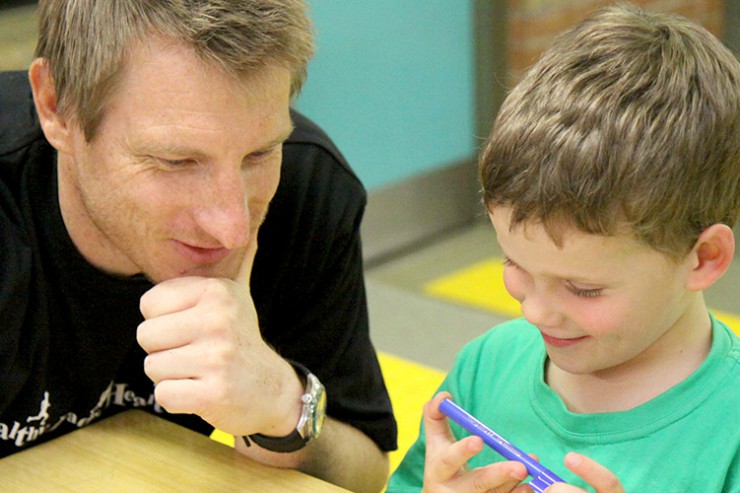Obesity in fathers can lead to poor family health
It is well established that obesity is associated with a range of adverse physiological and psychological health consequences. In Australia, two-thirds of men are overweight or obese, and these statistics are similar in many developed countries. Yet men are less likely to attempt weight loss than women and are notoriously difficult to recruit to weight loss programs.
In addition to the health consequences of being obese as an adult male, those who are fathers also place their child at increased risk for obesity. Earlier research found that obese children with an obese father were nearly three times more likely to remain obese as an adult compared with those children whose father was not obese.
Obesity in fathers has also been found to be associated with a four-fold increase in the risk of obesity for both sons and daughters at 18 years of age, which further increases childrens risk of various lifestyle diseases in adulthood.
Dads as role models
It is well established that parents have a critical influence on the development of positive health behaviors in children. Parents influence the food and physical activity home environment through their own behaviors, attitudes, modeling, parenting styles and child feeding practices.
Physically active parents more likely to have physically active children.
While there is some research consensus that lifestyle interventions for children should involve parents as key agents of change, systematic reviews highlight the uncertainty around optimal strategies to target and involve parents.
Research to evaluate the feasibility and efficacy of well-designed studies that target parental physical activity and dietary behaviors to influence both the parent and the child are a priority.
Family-based interventions have traditionally engaged mothers . Fathers have not been exclusively targeted and their influence on children’s physical activity and eating behaviour is commonly overlooked.
A number of studies have demonstrated the relationship between mothers’ health and behaviors and their children’s well-being but the specific influence of fathers on their children has only recently been examined.
Previous research demonstrated that it was the parenting styles and behaviors of fathers, and not mothers, that predicted preschool children’s overweight status. Further research found that fathers’ parenting style predicted better maintenance of weight loss in obese children.
Although a body of evidence is accumulating relating to the role of the father in a child’s development, there is a paucity of experimental research on the impact of fathers on childrens physical activity and dietary habits.
Aim of HDHK
The primary aim of the Healthy Dads, Healthy Kids RCT was to evaluate the feasibility and efficacy of a program that targeted overweight/obese fathers to lose weight, and in turn act as role models to promote positive physical activity and eating behaviors for their children.
The research team hypothesized that health outcomes and behaviors of both fathers and children would improve in the intervention group when compared to a wait-list control group at 6-month follow-up.

